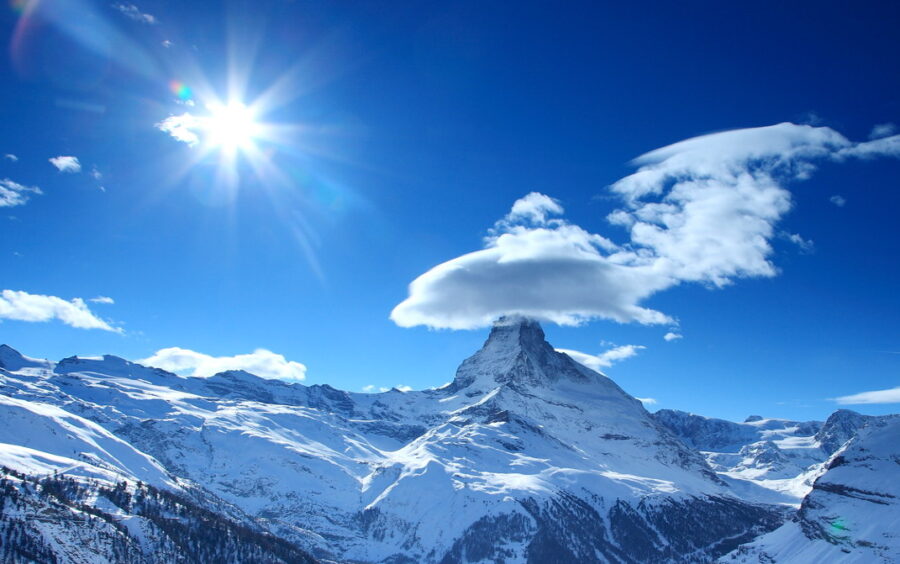The Shkhina is the dwelling or presence of God in the Tabernacle of Moses and later the Temple of Solomon. “And I will dwell [Hebrew: v’shakhanti] among the people of Israel, and will be their God.” Ex 29:45.
God Dwells With Us
V’shakhanti, “And I will dwell,” is the imperfect tense of the Hebrew root shkhn, dwell, suggesting eternity. The root shkhn has many uses, for instance, a neighbor is a shakhen, and a housing development is a shikun, but Shkhina is used only in connection with the Tabernacle.
The Jewish Marriage Ceremony
There are two stages in a Jewish marriage. The first stage is kidushin, betrothal. “Therefore a man leaves his father and his mother and cleaves to his wife, and they become one flesh” Gen 2:24. The second is nisuin, completion. The kidushin sanctifies the marriage, makes it a full marriage in Jewish law. However, the marriage is not complete until the rabbi completes the nisuin under the khupa.
Rabbi Yeshua observed, “Have you not read that he who made them from the beginning made them male and female, and said, ‘For this reason a man shall leave his father and mother and be joined to his wife, and the two shall become one flesh’? So they are no longer two but one flesh. What therefore God has joined together, let not man put asunder” Mt 19:5–6.
Preparation for the Mashiakh
Shkhina is a feminine name for God’s presence. Hebrew words ending in ah are generally feminine. In Moses’ time men studied the Torah while women attended to the family’s day-to-day needs. Perhaps God, knowing that menwould read his words, used a feminine Shkhina image to better convey the idea of a betrothal between God and man.
Did the Shkhina prepare Jews for his Mashiakh to come? Orthodox Rabbi Ari Enkin explains that Jewish tradition sees the Mt. Sinai encounter with God as a betrothal. The Mt. Sinai kidushin was, “Behold the blood of the covenant which the LORD has made with you in accordance with all these words” Ex 24:8. Immediately after it, God gave Moses and his companions a foretaste of the nisuin, the eternal wedding feast in heaven. “They beheld God, and ate and drank” Ex 24:11.
Rabbi Yeshua continued our preparation for the wedding feast in heaven. “Now as they were eating, Jesus took bread, and blessed, and broke it, and gave it to the disciples and said, ‘Take, eat; this is my body.’ And he took a cup, and when he had given thanks he gave it to them, saying, ‘Drink of it, all of you; for this is my blood of the covenant, which is poured out for many for the forgiveness of sins. I tell you I shall not drink again of this fruit of the vine until that day when I drink it new with you in my Father’s kingdom’” Mt 26:26–29. Again men beheld God, and ate and drank. But this time their food and drink were Rabbi Yeshua himself, who brings sanctifying grace.
Rabbi Yeshua, in the Shkhina tradition, taught that God and baptized man are ontologically united as to an eternal wedding feast Mt 9:15. “Do you not know that all of us who have been baptized into Christ Jesus were baptized into his death? We were buried therefore with him by baptism into death, so that as Christ was raised from the dead by the glory of the Father, we too might walk in newness of life” Rom 6:3–4.
§ 1225 “In his Passover Christ opened to all men the fountain of Baptism. He had already spoken of his Passion, which he was about to suffer in Jerusalem, as a ‘Baptism’ with which he had to be baptized. The blood and water that flowed from the pierced side of the crucified Jesus are types of Baptism and the Eucharist, the sacraments of new life. From then on, it is possible ‘to be born of water and the Spirit’ in order to enter the Kingdom of God. See where you are baptized, see where Baptism comes from, if not from the cross of Christ, from his death. There is the whole mystery: he died for you. In him you are redeemed, in him you are saved.”
But baptism is only the kidushin, the betrothal. During this life we can betray our baptismal promises and lose our place at the wedding feast. If we have passed into eternity in the state of grace, and completed our purgation, “[Rabbi Yeshua’s] Bride has made herself ready; it was granted her to be clothed with fine linen, bright and pure”— for the fine linen is the righteous deeds of the saints” Rev 19:7–8. Then comes the nisuin. The first foretaste, “They beheld God, and ate and drank” Ex 24:11, and the greater second foretaste, “Take, eat; this is my body” Mt 26:26, and “This is my blood of the covenant” Mt 26:28, become at last the true feast: “Blessed are those who are invited to the marriage supper of the Lamb” Rev 19:9.
